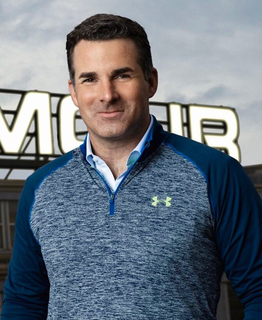A Quote by Scott Cook
Subsequent to the original Quicken, the whole idea that we, as a consumer products company, could actually make business products, that was a whole revolution in our thinking.
Related Quotes
I took a dozen of our top managers to Argentina, to the windswept mountains of the real Patagonia, for a walkabout. In the course of roaming around those wild lands, we asked ourselves why we were in business and what kind of business we wanted Patagonia to be. A billion-dollar company? Okay, but not if it meant we had to make products we couldn't be proud of. And we discussed what we could do to help stem the environmental harm we caused as a company. We talked about the values we had in common, and the shared culture that had brought everyone to Patagonia, Inc., and not another company.
At the end of the day, customer choice is essential. And we don't make products that compete with Apple, nor make products that compete with Google. Our customers come in both iOS and Android flavors, and I hope our customers can still buy the products they want to purchase wherever they want to purchase them.
Endless data show that diverse teams make better decisions. We are building products that people with very diverse backgrounds use, and I think we all want our company makeup to reflect the makeup of the people who use our products. That's not true of any industry really, and we have a long way to go.
We’re keenly aware that when we develop and make something and bring it to market that it really does speak to a set of values. And what preoccupies us is that sense of care, and what our products will not speak to is a schedule, what our products will not speak to is trying to respond to some corporate or competitive agenda. We’re very genuinely designing the best products that we can for people.
When a company is not being guided by the products they make and what the customers need, but by how they can manipulate the system - get regulations on their competitors, or mandates on using their products, or eliminating foreign competition - it just lowers the overall standard of living and hurts the disadvantaged the most.

































